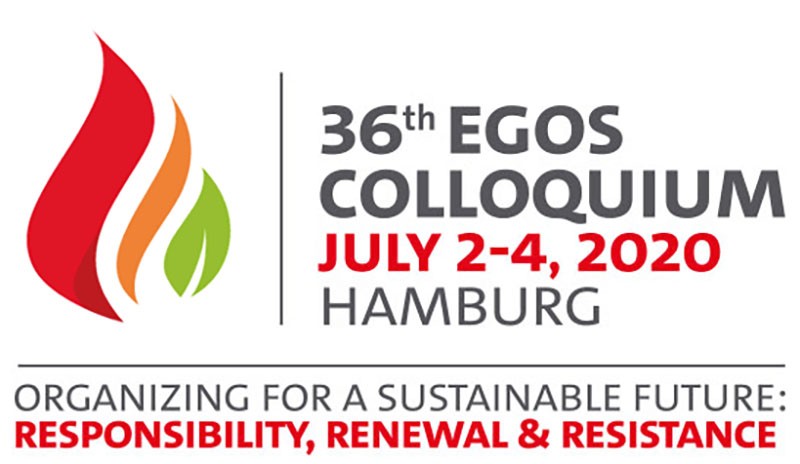Sub-theme 56: The Emergence, Evaluation, and Legitimation of Novelty and Novel Ideas
Call for Papers
Research on creativity and innovation has long been catalyzed by the ‘romantic’ view according to which major creative
achievements are sparked by imaginative and uniquely gifted individuals who succeed in bringing novel ideas, categories, projects
or organizational forms to life. Several scholarly contributions have supported this ‘heroic’ view leading to a vibrant body
of work that has enhanced our understanding of the individual dispositions, talents and agency that underlie the emergence
of novelty. Yet, by focusing primarily on the ‘supply side’ of novelty generation, this research has left largely underexplored
another key dimension: the need for recognition, namely the process by which the new and unaccepted is rendered valid and
accepted through the attainment of material and/or symbolic resources from relevant social audiences (Cattani & Ferriani,
2008). Indeed, novelty generation and novelty recognition correspond to two distinct phases of the journey of novelty, from
the moment it emerges to the moment it takes root and propagates (Cattani et al., 2017).
As Staw noted long
ago, “few people or organizations really want creativity” (Staw, 1995: 476), which means that some of the most promising ideas
are destined to oblivion (Deichmann & Van den Ende, 2014). This problem may by compounded by several factors. Besides
simply being overwhelmed by the number of ideas they must sort through (Piezunka & Dahlander, 2015), idea evaluators may
not have the capabilities and skills to recognize the value and novelty of an idea (Berg, 2016). In addition, people may have
implicit biases against creative ideas (Mueller et al., 2012).
Research has also shown a tendency among managers
to favor ideas from people they know or who somehow resemble them (Reitzig & Sorenson, 2013; Aadland et al., 2018). Such
in-group biases often persist even after correcting for the quality of an idea. Although a growing number of scholars have
started to investigate how creativity is perceived and evaluated (e.g., Mueller et al., 2012; Zhou et al., 2017) and have
begun to shed light on the factors that lead to a higher accuracy of idea evaluations (Berg, 2016), our understanding of how
novel ideas are actually received, perceived, and evaluated is still limited. Thus, a central question is what organizations
can do to better recognize novel ideas and support their proponents in implementing those ideas.
We encourage
researchers from a diverse array of academic disciplines – including organizational sociology, organizational behavior, strategy
and psychology – to submit papers that address this fundamental question. We are open to different types of theoretically
grounded empirical work based on qualitative and/or quantitative methods. We especially welcome work that aims to challenge
received wisdom in the organizational literature, and recommend submitting papers that are already in advanced state of development.
We will place special emphasis on innovative doctoral research that shows potential for contributing to the field in a non-conventional
way.
We also look forward to manuscripts whose theoretical perspectives and empirical findings allow comparing
practices across different empirical settings. To this end, we would like to solicit conceptual and empirical papers addressing
the following or very similar questions:
How can idea inventors overcome the biases for novelty?
What processes enable innovators to reduce or neutralize the resistance of core members of the field?
What institutional conditions facilitate/impede the successful challenge of peripheral actors to the core of a field?
How can organizations create systematic ways to recognize novel ideas?
What are the factors that influence the accuracy of idea evaluations?
Why do some outsiders succeed in disrupting the established way of doing things, while others fail to do so?
How can idea evaluators overcome some of the challenges that are associated with the recognition and evaluation of novel ideas?
References
- Aadland, E., Cattani, G., & Ferriani, S. (2018): “The Social Structure of Consecration in Cultural Fields: The Influence of Status and Social Distance in Audience-Candidate Evaluative Processes.” In: C. Jones & M. Maoret (eds.): Frontiers of Creative Industries: Exploring Structural and Categorical Dynamics. Research in the Sociology of Organizations, Vol. 55. Bingley: Emerald Publishing Limited, 129–157.
- Berg, J.M. (2016): “Balancing on the Creative Highwire: Forecasting the Success of Novel Ideas in Organizations.” Administrative Science Quarterly, 61 (3), 433–468.
- Cattani, G., & Ferriani, S. (2008): “A Core/Periphery Perspective on Individual Creative Performance: Social Networks and Cinematic Achievements in the Hollywood Film Industry.” Organization Science, 19 (6), 824–844.
- Cattani, G., Ferriani, S., & Lanza, A. (2017): “Deconstructing the Outsider Puzzle: The Legitimation Journey of Novelty.” Organization Science, 28 (6), 965–999.
- Coser, L.A. (1962): “Some Functions of Deviant Behavior and Normative Flexibility.” American Journal of Sociology, 68 (2), 172–181.
- Deichmann, D., & Van den Ende, J. (2014): “Rising from Failure and Learning from Success: The Role of Past Experience in Radical Initiative Taking.” Organization Science, 25 (3), 670–690.
- Merton, R.K. (1972): “Insiders and Outsiders: A Chapter in the Sociology of Knowledge.” American Journal of Sociology, 78 (1), 9–47.
- Mueller, J.S., Melwani, S., & Goncalo, J.A. (2012): “The Bias Against Creativity: Why People Desire but Reject Creative Ideas.” Psychological Science, 23 (1), 13–17.
- Piezunka, H., & Dahlander, L. (2015): “Distant Search, Narrow Attention: How Crowding Alters Organizations’ Filtering of Suggestions in Crowdsourcing.” Academy of Management Journal, 58 (3), 856–880.
- Reitzig, M., & Sorenson, O. (2013): “Biases in the selection stage of bottom-up strategy formulation.” Strategic Management Journal, 34 (7), 782–799.
- Sgourev, S.V. (2013): “How Paris Gave Rise to Cubism (and Picasso): Ambiguity and Fragmentation in Radical Innovation.” Organization Science, 24 (6), 1601–1617.
- Staw, B.M. (1995): “Why No One Really Wants Creativity.” In: C.M. Ford & D.A. Gioia (eds.): Creative Action in Organizations: Ivory Tower Visions & Real World Voices. Thousand Oaks: SAGE Publications, 161–166.
- Zhou, J., Wang, X.M., Song, L.J., & Wu, J. (2017): “Is It New? Personal and Contextual Influences on Perceptions of Novelty and Creativity.” Journal of Applied Psychology, 101 (2), 180–202.


